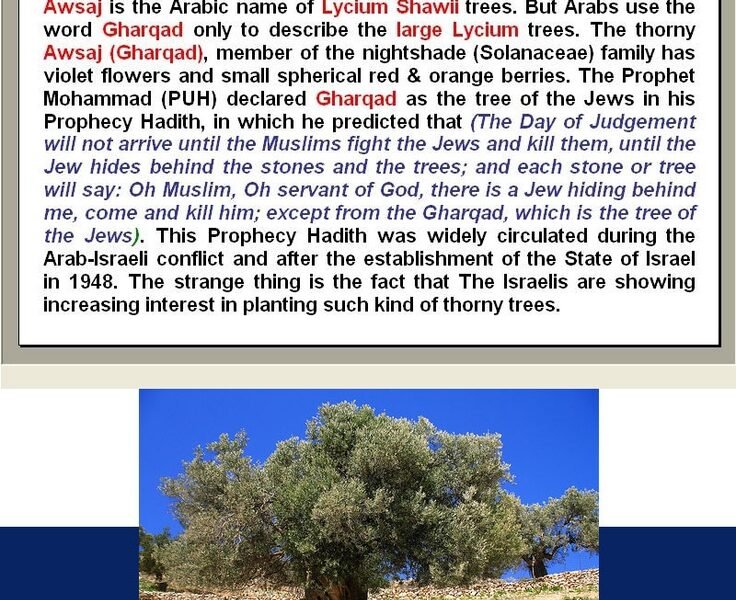
About Gharkad Tree
The History of the Gerkad Tree and Its Mention in the Quran

The Gerkad tree is not as well-known as other trees like the olive or date palm, but it has deep roots in various cultural and historical contexts. Although not explicitly mentioned by name in the Quran, its significance and lessons can be reflected upon through a Quranic lens.
Historical Significance of the Gerkad Tree

The Gerkad tree, native to parts of Somalia and the Horn of Africa, is often admired for its resilience in arid regions. For centuries, it has played a crucial role in the lives of the local communities. Its wood has been used for building, and its shade provides relief in the hot climates. In traditional Somali culture, the Gerkad tree is often a symbol of strength, stability, and resourcefulness, offering sustenance and shelter in challenging environments.
Through history, the Gerkad has also been a meeting point for communal gatherings, symbolizing unity and peace. Elders would meet under its expansive branches to resolve disputes, give counsel, and guide younger generations.
Trees in the Quran

While the Gerkad itself is not mentioned in the Quran, trees are given significant importance in Islam. Trees symbolize life, sustenance, and the natural balance created by Allah (SWT). The Quran mentions trees like the date palm, olive, and the blessed tree in Surah An-Nur (24:35), which metaphorically represents the light of Allah.
Allah says in the Quran:
“And the earth, We have spread it out and placed therein firmly set mountains and caused to grow therein [something] of every well-balanced thing.”
— (Surah Al-Hijr, 15:19)
This verse emphasizes that every creation, including trees, serves a purpose in the divine order. The Gerkad, like all trees, reflects the miraculous creation of Allah, thriving even in challenging conditions, much like the human soul which can persevere through faith.
The Connection of Trees to Spiritual Growth

The Quran frequently draws analogies between nature and spiritual growth. For example, trees represent the growth of faith in the heart of a believer. In Surah Ibrahim (14:24-25), Allah (SWT) gives the example of a good word being like a good tree, deeply rooted and producing fruit at all times.
Trees in Islam also have a role in charity and forgiveness. The Prophet Muhammad (PBUH) said: “If a Muslim plants a tree or sows seeds, and then a bird, or a person, or an animal eats from it, it is regarded as a charitable gift (Sadaqah) for him.”
— (Sahih Bukhari)
This hadith reflects the mercy and continuous benefit that trees, like the Gerkad, provide to all of creation. Even the simplest act, such as planting a tree, holds immense value in Islam.
The Spiritual Lesson of the Gerkad Tree

The Gerkad tree’s resilience and ability to thrive in harsh environments can be a lesson for believers. Just as the tree roots itself deeply to access water in dry regions, Muslims are encouraged to root their faith deeply in the teachings of the Quran and the Sunnah. Life, like the environment in which the Gerkad grows, may be difficult at times, but with strong faith, one can remain firm and flourish spiritually.
Conclusion
The Gerkad tree, while not directly mentioned in the Quran, holds significant historical and cultural value in the regions where it grows. Its resilience and usefulness can be seen as an extension of the lessons taught by trees in the Quran: to grow steadfast in faith, to give generously to others, and to recognize the balance and wisdom of Allah’s creation. By reflecting on the symbolic meanings of trees in the Quran, we can draw spiritual strength and recognize the divine wisdom in all of nature’s creations.





nice post
Happy holidays from Iowa, Winston here. I’m always watching to see what newer sites are going up and I just wanted to see if you would like an extra hand with getting some targeted traffic, Create custom AI bots to answer questions from visitors on your site or walk them through a sales process/funnel – I could even make a persona of yourself or employee to field questions about your business. I create/edit videos/images/adcopy, create/revamp/update sites, remove negative listings, the list goes on. I’ll even shoulder 90% of the costs, dedicating my time and tools that I’ve created myself and bought over the years. I’ve been doing this for over 22 years, helped thousands of people and have loved every minute of it.
There’s virtually no cost on my end to do any of this for you except for my time starting at 99 a month. I don’t mean to impose; I was just curious if I could lend a hand.
Brief history, I’ve been working from home for a couple decades now and I love helping others. I’m married, have three girls and if I can provide for them by helping you and giving back by using the tools and knowledge I’ve built and learned over the years, I can’t think of a better win-win.
It amazes me that no one else is helping others quite like I do and I’d love to show you how I can help out. So, if you need any extra help in any way, please let me know either way as I value your time and don’t want to pester you.
PS – If I didn’t mention something you might need help with just ask, I only mentioned a handful of things to keep this brief 🙂
All the best,
Winston
Cell – 1-319-435-1790
My Site (w/Live Chat) – https://cutt.ly/bec4xzTQ
Jzak Allah for your cooperation if i find some problem i shall take help from you
IXjFN VyTxJM yTQHgx